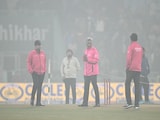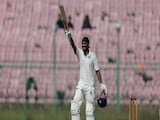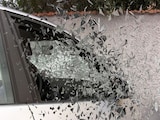Delhi today recorded severe traffic congestion and waterlogging after several parts of the national capital experienced heavy unpredicted rainfall in the morning.
Delhi Traffic Police issued many alerts for severe traffic congestion in several areas of the capital. These areas included GTK Road, RTR from Moti Bagh Chowk towards Sector-8 R.K Puram and New Rohtak Road on both carriageways from Zakhira to Kamal T-Point, to name a few.
"Traffic Alert, Traffic is heavy on Ring Road, Vande Mataram Marg and GGR due to heavy water logging under Dhaula Kuan Flyover. Kindly avoid these stretches and plan your journey accordingly," Delhi Traffic Police wrote on X,
The India Meteorological Department also shared important information about the rainfall situation on social media platform X, The department said "Light to moderate rainfall accompanied with light thunderstorm and lightning is likely to occur at many places of Delhi, NCR ( Chhapraula, Noida, Dadri, Greater Noida, Faridabad, Ballabhgarh) during next 2 hours."
Police claim to have recieved over 12 complaints of traffic congestion and around 12 of severe waterlogging.
According to the India Meteorological Department, Delhi recorded a minimum temperature of 26.5 degrees Celsius. The air quality had a reading of 75, which comes under satisfactory category
Delhi in August has recorded 269.9 mm of rainfall so far, which is the highest amount of rainfall experienced by the city in the last 10 years, according to India Meteorological Department data.
With Inputs From ANI, PTI















